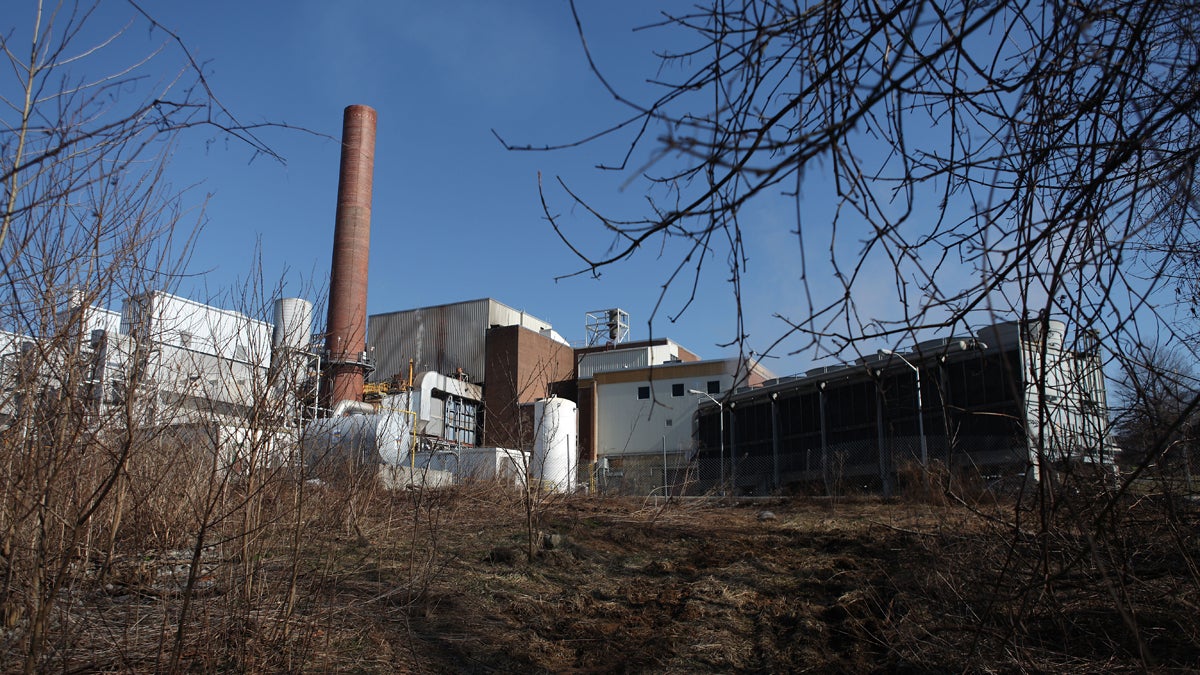Pa. suing firms, professionals involved in Harrisburg incinerator fiasco

The Harrisburg Incinerator on South 19th Street, in Harrisburg, Pa. (AP Photo/Carolyn Kaster, File)
Nearly a dozen capital-region firms and professionals are being sued over their involvement in financial transactions that helped push the city of Harrisburg to the brink financially several years ago.
The 102-page lawsuit filed today in Commonwealth Court makes fraud, malpractice, negligence and other claims against law, engineering and financial advisory firms.
The complaint accuses them of “profit[ing] handsomely” while misleading state and city officials responsible for approving $360 million in bonds issued between 2003 and 2007 to improve Harrisburg’s trash incinerator.
The incinerator was operated by the former Harrisburg Authority (now Capital Region Water). Along with Dauphin County, the city had guaranteed much of the money borrowed by the authority for project.
The guarantees meant the city was responsible for making payments on the bonds if the authority could not. Ultimately, neither could pay, and both defaulted — prompting a state takeover of Harrisburg from 2011-2014.
The incinerator retrofit and related bond deals were negotiated during former Mayor Stephen Reed’s seven-term tenure. But Reed is not named in the complaint and his conviction last year was strictly related to a separate case in which he was found guilty of stealing artifacts.
The lawsuit doesn’t specify the amount of damages being sought.
One of the defendants, Eckert Seamans, issued a statement. It said in part:
“Throughout all of the investigations into the City of Harrisburg’s finances over the past seven-plus years, Eckert Seamans cooperated fully….We remain firm in that belief and that Eckert Seamans will be fully vindicated in this proceeding.
The retrofit project and financing could not have gone forward without the approval of the elected and appointed officials of the Authority, the County, and the City, and after extensive and careful consideration, those officials made the decisions to approve both the retrofit project and the financing.
The Pennsylvania Department of Community and Economic Development (DCED), one of the plaintiffs in this lawsuit, reviewed the submissions for the 2003 and 2007 proposed debt issuances, as it is required to do by law, and approved the debt issuances. Without DCED’s approval, the debt would not have been incurred. To the extent DCED claims, more than a decade later, that any portion of the submissions for approval made to DCED was deficient, that claim ignores that it was incumbent upon DCED, as the Commonwealth’s gatekeeper on municipal debt, to require correction of any supposed deficiency in the submission for approval, and in the absence of a correction, to deny approval. The fact is that the submissions were proper and DCED approved them.
Ultimately, the financial problems that arose from the retrofit project are grounded in the failure of Barlow Engineering to complete the retrofit project in accordance with its contract with the Authority, and Barlow Engineering’s bankruptcy filing when the retrofit was only partially complete, which left an unfinished facility that could operate at only a fraction of its expected level. Our firm had no responsibility whatsoever for these events.”
The lawsuit was a “surprise” to defendant Public Financial Management Inc., according to spokesman Brian Dries, who declined further comment via email.
Other defendants have not yet responded to requests for comment.
Gov. Tom Wolf and Marita Kelley, DCED’s Deputy Director of Local Government Services and coordinator overseeing Harrisburg’s financial recovery, are bringing the case on behalf of state and local taxpayers, respectively.
“Professionals involved in these transactions reaped financial rewards at taxpayers’ expense,” the lawsuit reads.
It also notes “substantial” costs for city residents and businesses that are ongoing as a result of the billion-dollar deal that resolved the original incinerator debt.
Today’s legal action is long-awaited, with this lawsuit anticipated after a second grand jury released its report over a year ago recommending no criminal charges beyond what Reed faced would be filed in relation to Harrisburg’s near bankruptcy.
The report also recommended changes to state laws on borrowing by local governments, echoing calls that began soon after Harrisburg and the former Harrisburg Authority defaulted.
WHYY is your source for fact-based, in-depth journalism and information. As a nonprofit organization, we rely on financial support from readers like you. Please give today.






